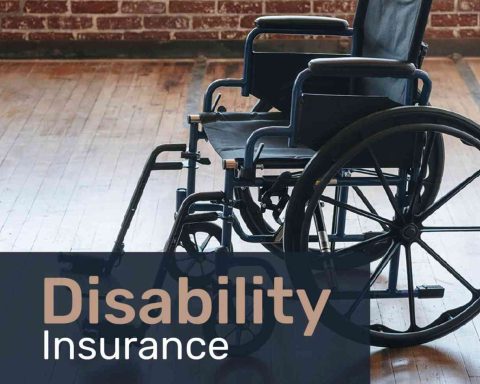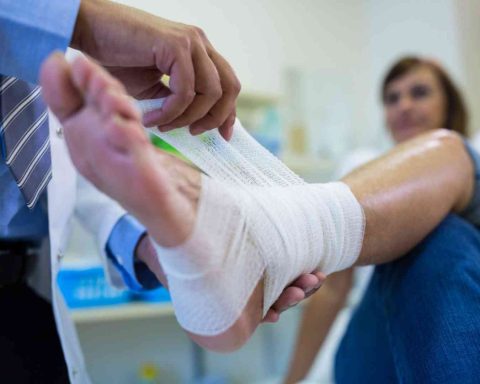Accidents can happen at any workplace, and when they do, it’s crucial to understand your rights as an injured worker in Colorado. Navigating the legal landscape can be daunting, but being informed empowers you to secure your future.
In this article, we will guide you through the essential rights and steps to take when injured on the job in Colorado. This ensures that you receive the support and compensation you deserve.
Immediate Actions After an Injury
When injured at your workplace in Colorado, swift and decisive actions are crucial. Firstly, seek immediate medical attention. In Colorado, workers have the right to choose their treating physician, ensuring they receive proper care. Notify your employer about the incident promptly, as failure to do so within four days may impact your eligibility for workers’ compensation benefits.
Ensure the medical documentation clearly details the work-related nature of your injury. Colorado’s workers’ compensation act emphasizes the importance of notifying employers promptly. According to the Colorado Department of Labor and Employment, the injury must be reported to the employer within 10 days.
After seeking medical help, report the incident to your supervisor or employer, providing details about the time, place, and circumstances of the injury. This initial reporting lays the foundation for your subsequent claims. Remember, failure to report on time may lead to the denial of benefits.
Workers’ Compensation Benefits
Colorado’s workers’ compensation system is designed to provide a safety net for injured workers. The benefits encompass medical expenses, wage replacement, and vocational rehabilitation.
In Colorado, injured workers are entitled to all reasonable and necessary medical care related to their injuries. Understanding the comprehensive nature of these benefits ensures that you receive adequate support during your recovery.
Workers’ compensation benefits in Colorado also cover mileage expenses for travel to and from medical appointments. This is a practical consideration for workers residing in rural areas. Additionally, Colorado law allows for compensation for permanent disabilities, with the amount determined by the severity of the impairment.
According to Lawyers.com, if you do not have a car, the expenses related to transportation are typically included. Additionally, you may have the opportunity to request reimbursement for parking fees accrued at your doctor’s office. Any tolls incurred during your journey are also eligible for coverage.
Know Your Eligibility for Benefits
Not all injuries qualify for workers’ compensation benefits in Colorado. Understanding eligibility criteria is crucial.
Generally, injuries sustained while performing work duties are covered, but injuries resulting from willful misconduct or intoxication may be excluded. Certain occupational diseases are also covered, emphasizing the importance of connecting your ailment to your job.
Colorado’s workers’ compensation system takes into account the mental health of workers. If you suffer from a mental health condition due to a work-related incident, you may be eligible for benefits. Recognizing the breadth of covered injuries ensures you pursue your claim confidently and receive the compensation you deserve.
Dealing with Denials and Appeals
In the unfortunate event of a claim denial, understanding the appeals process becomes crucial. Workers in Colorado can request a hearing before an administrative law judge to present their case.
The reasons for denial can vary, but common issues include incomplete documentation or disputes over the work-related nature of the injury. According to Insurance Business America, missed deadlines are the topmost reason for a workers’ compensation claim being denied.
Colorado’s workers’ compensation appeals process allows for a fair reconsideration of denied claims. Ensure all relevant documentation, including medical records and incident reports, is provided during the appeal. It’s crucial to approach the appeal process systematically, addressing the specific reasons for denial and presenting a compelling case for reconsideration.
Return to Work Options
Returning to work after an injury in Colorado involves various considerations. The state encourages employers to provide modified duties or alternative work arrangements to facilitate the injured employee’s reintegration into the workforce. This may include adjusted schedules, temporary job modifications, or even different roles within the company.
Colorado’s workers’ compensation system emphasizes the importance of vocational rehabilitation, offering support for training or education to enhance employability. Exploring these options with your employer ensures a smooth transition back to work.
Additionally, workers have the right to seek a second medical opinion if they are dissatisfied with their initial treatment plan. This contributes to a more comprehensive recovery process.
Consulting with an Experienced Attorney
Navigating Colorado’s workers’ compensation laws can be complex, making the guidance of an experienced attorney invaluable. A knowledgeable attorney can help you understand the specific nuances of Colorado’s laws and ensure your rights are protected throughout the process.
In Colorado Springs, a city renowned for its diverse industries, seeking legal advice tailored to the local landscape becomes even more crucial. A knowledgeable Colorado Springs personal injury attorney can help you understand the specific nuances of the city’s regulations. This can make sure that your rights are protected throughout the process.
Springs Law Group notes that Colorado Springs is home to reputable law firms specializing in personal injury and workers’ compensation cases. Consider consulting with a local attorney who has a deep understanding of the opportunities within the Colorado Springs legal environment. They can provide personalized advice, help you gather necessary documentation, and represent you in hearings or appeals.
Potential Third-Party Claims
In certain instances, a third party may be responsible for a workplace injury in Colorado. For example, if defective equipment or someone not employed by your company contributed to the incident, you may have grounds for a third-party claim.
Identifying these potential liabilities is crucial for maximizing compensation.
Colorado’s legal landscape allows injured workers to pursue third-party claims alongside their workers’ compensation benefits.
These claims may involve manufacturers, subcontractors, or other entities not directly affiliated with your employer. Understanding this aspect of the law ensures you explore all avenues for compensation and hold all responsible parties accountable for your injuries.
In summary, injured workers in Colorado must act promptly and stay informed to navigate the complex landscape of workers’ compensation. Timely reporting, understanding eligibility criteria, and strategic appeals are crucial steps in securing deserved compensation.
Seeking guidance from experienced attorneys in Colorado Springs adds a valuable layer of protection. Additionally, recognizing potential third-party claims broadens avenues for compensation, underscoring the need for a comprehensive approach.
By staying informed, acting decisively, and exploring all available options, individuals can protect their rights in case of a workplace injury in Colorado.






